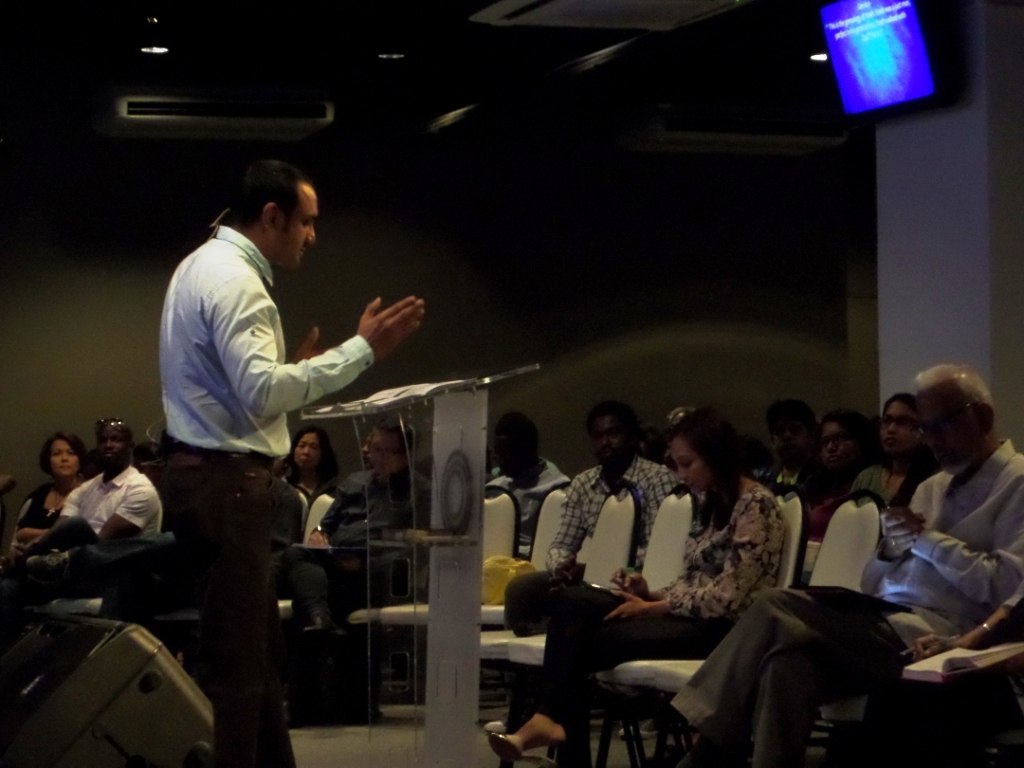
16 Apr 2015 by Jason Law CM –
People sometimes tend to divide the Old Testament and New Testament parts of the Bible, as if they’re disparate. Yet we know that God is amazingly consistent. How do we reconcile this, especially when the names and structure of the Bible seem to point that they’re separate?

The C3 church in Subang is currently going through a series on the Bible, starting with the Book of Genesis. On 12 April 2015, Pastor Clarance Shashi shared a message from Genesis 6-9, the story of Noah, and how it pointed to the role of Jesus in its future, but in our current day. The Old Testament ties in with the New Testament, and the Bible is a single body of work, not something that is split into two as if the Old Testament has no relevance for us today.
The Book of Genesis
The clues of Genesis’ significance are in its structure itself. In the chronicle of the Creation, we learn about God’s original plan for mankind; a plan which still applies to the present day. In the narrative of the Fall, we learn how sin came into the world and why the world is the way it is today. The Tower of Babel explains the existence of the various tribes, and the life of Abraham explains much that is still going on in the Middle East.

In the story of the Flood, we learn of the consequences of sin and the reality of the judgment. However, much as we recognize the story of the Flood as a story of judgment, it is also a story of Grace, embodied in Christ Jesus, 2000 years after it.
God Feels
Like much else in the book of Genesis, the series of events surrounding Noah is inherently one of the problem of sin. In Genesis 6:5, the Bible tells us that the Lord observed mankind, and He saw that everything they thought was consistently or totally evil. And the Lord felt sorry that He had ever made them. How is it possible for an omniscient God to feel regret?
Pastor Clarance explained; ‘People may wonder; if God is omniscient, how could He feel regret? But it tells us that God feels. Jesus had the power to raise Lazarus from the dead, yet He wept over his death (John 11:23-25; 33-38).’ Christ wept as well over the foredooming of Jerusalem (Luke 13:34; Luke 19:41-44). ‘Knowing something doesn’t take away the emotions we feel in the experience of something. At the center of Christianity and the Gospel is a God who feels.’

The fact that God felt regret over what He was obliged and necessary to do, gives clear indication that He took no pleasure in the death of the wicked (Ezekiel 33:11). In the Gospels our Lord wept as He looked on man’s misery, and both instances demonstrate our Lord’s (loving) human nature, His compassion for people, and the life He offers to those who believe. When Jesus wept, He showed all these things.
Realities at the Heart of Christianity and the Gospel Message
There are realities in Noah’s account that is still relevant to the heart of Christianity and the Gospel Message today. The first is the problem of sin. In 2 Peter 2:5; we are reminded that Noah was saved by God because he walked rightly with God. Noah was a preacher of righteousness but people were unresponsive. There was such continuous evil in Noah’s day (Genesis 6:5) that God had to wipe the world clean and start again except for Noah and his family. 2 Timothy 3:1-5 tells us that the Last Days will parallel the days of Noah.

Sin and its judgment are real but the story does not end there. Just as God did not wipe out everyone during the Flood but had grace on Noah and his family, God has a plan of grace for us today. We are reminded of this hope again and again throughout the Bible. The wicked are punished for their own wickedness while the righteous will be rewarded (Ezekiel 18:20). God desires no one to perish but all to come to His saving knowledge (1 Timothy 2:3-5; John 3:17).
‘In Noah’s time, it was the Ark that saved them. In our time, it is the cross. Jesus Christ is our in-between today. He is our salvation,’ Pastor Clarance encouraged.
Parallels between Noah, Christ, and Christians
The kind of life that Noah led also has lessons for us. Noah was perfect in his generation (Genesis 6:9). Perfect in this context does not mean perfectionism. It meant well-balanced, sound, without blame. Noah was counter-cultural. He made a conscious decision to honor God.
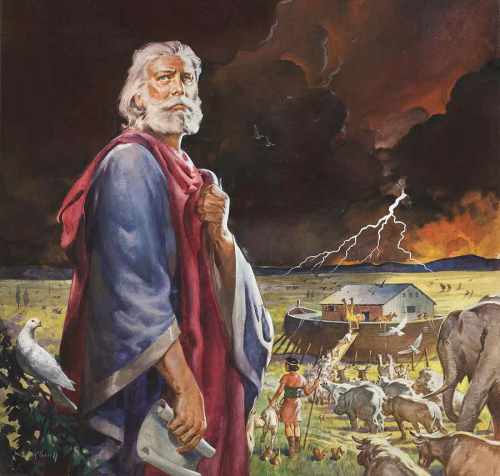
As Christians, we are also called to be counter-cultural. Our standards are not of this world but of God. We have roles as God’s thermostats. We have the power to change atmospheres and we carry God’s presence with us. Our presence ought to make a difference, amidst everything around us that are considered acceptable but are in fact dishonoring to God.
Noah and his whole family were saved because of Noah’s righteousness (Genesis 7:1). ‘Note the Bible did not say that Noah’s family was righteous, it said that Noah was righteous,’ Pastor Clarance pointed out. ‘Noah’s favour with God overflowed into his family. Because of his right behavior, the whole family was saved. They were saved because they belonged to him.’
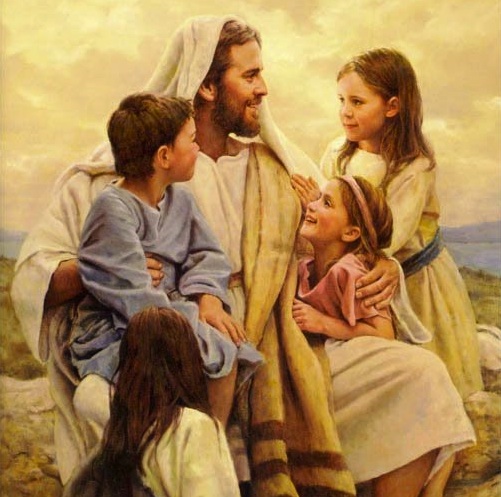
Today, Christians are heirs of Jesus Christ. Because we belong to Christ, we have salvation. Perfection is not the requirement for salvation. Belonging to God is. ‘Just as Noah’s family inherited their salvation, today it is not about you and I earning our salvation. Jesus Christ walked right with God. He was holy, He was just, He stood rightly with God. Today you and I are called heirs of salvation not because of anything we have done, but because we belong to the One who is perfect, the One who is just. Because He is Holy, grace comes into our lives,’ Pastor Clarance conveyed.
Jesus, Our Ark of Salvation
Pastor Clarance communicated that the story of Noah and the Ark is real. Archaeological discoveries on Mount Ararat in Turkey revealed remnants of an ark, which corresponded remarkably to the measurements recorded in the Bible. There was only one way for Noah and his family to enter into the Ark (Genesis 6:16). For us, that one way has been provided through Christ (John 10:9; John 14:6).
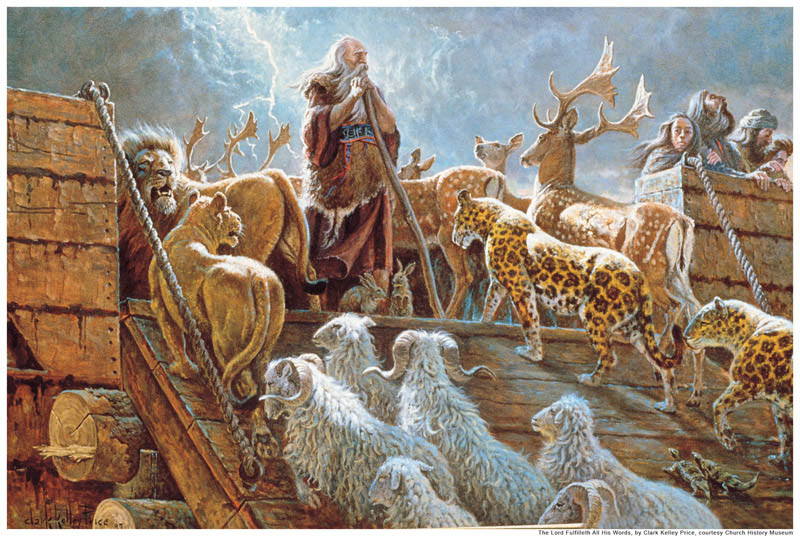
All the needs of the family were met with in the Ark. When we belong to Christ, it is more than just one day going to heaven. God meets our every need, so much so that we can be an influence to people around us for the glory of His Kingdom (2 Peter 1:3; Phillipians 4:19).
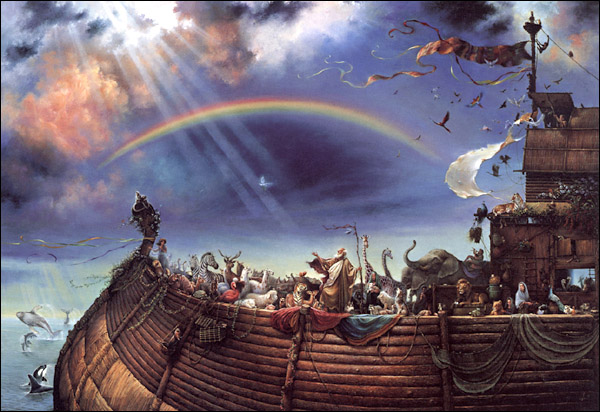
What’s more, we have security through Christ, and it is sealed by God. When Noah’s family entered the Ark, it was the Lord that shut them in safely. ‘Only God can do so, and every attempt that man makes through their own efforts will only leak,’ Pastor Clarance communicated. Having also believed, we are sealed in Him with the Holy Spirit of promise, who is given to us as a pledge of our inheritance (Ephesians 1:13-14).
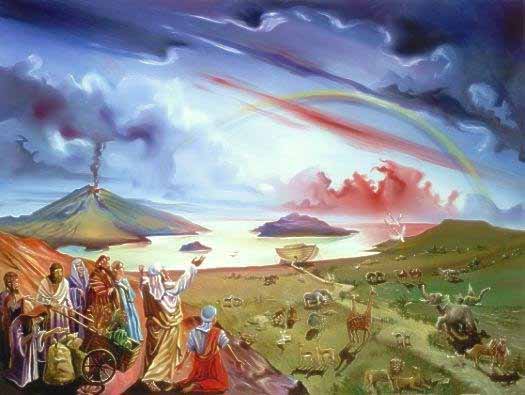
Pastor Clarance illustrated; ‘There was a violent storm going on outside the Ark. Noah’s family must have fallen many times inside it, but they fell within it. Though a righteous man falls 7 times he rises again, while the wicked stumble calamitously (Proverbs 24:16). This is God’s promise – He has sealed us under His covering. And unless we deny God, He will never forsake us. Though we may fall seven times, we need to dust ourselves and rise up again and come back to God.’
God’s Grace
Noah and his family were protected in the Ark for 370 days. Today, Christ’s salvation is for eternity. The Ark took the beating of the storm outside so that those inside can be saved. Jesus took the beating and was crucified so that all who come back to God can be saved. There is a remarkable parallel between the story of the Flood and the story of Calvary. God remains constant and unchanging.
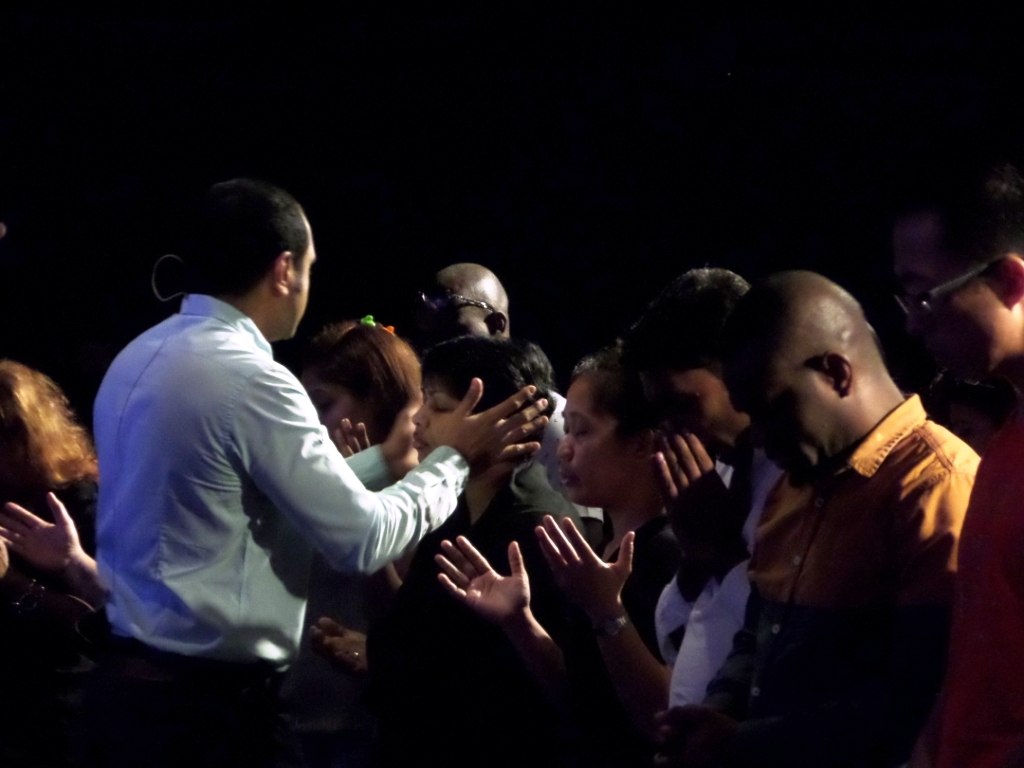
God’s plan of salvation for humanity is not going to be through coercion but through invitation. ‘It is an invitation by God to us,’ Pastor Clarance conveyed. ‘God invited Noah into the Ark (Genesis 7:1). The apostles invited people to come to God (Acts 16:31-32). Jesus Himself extends the invitation: “Come to me, all you who are weary and burdened, and I will give you rest (Matthew 11:28).”’ It is a call of compassion from God, made from a heart of grace and love.
|Share The Good News|
NOTE: All pictures from C3 Subang taken with the kind assistance of the church.


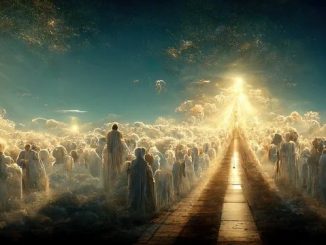

Leave a Reply